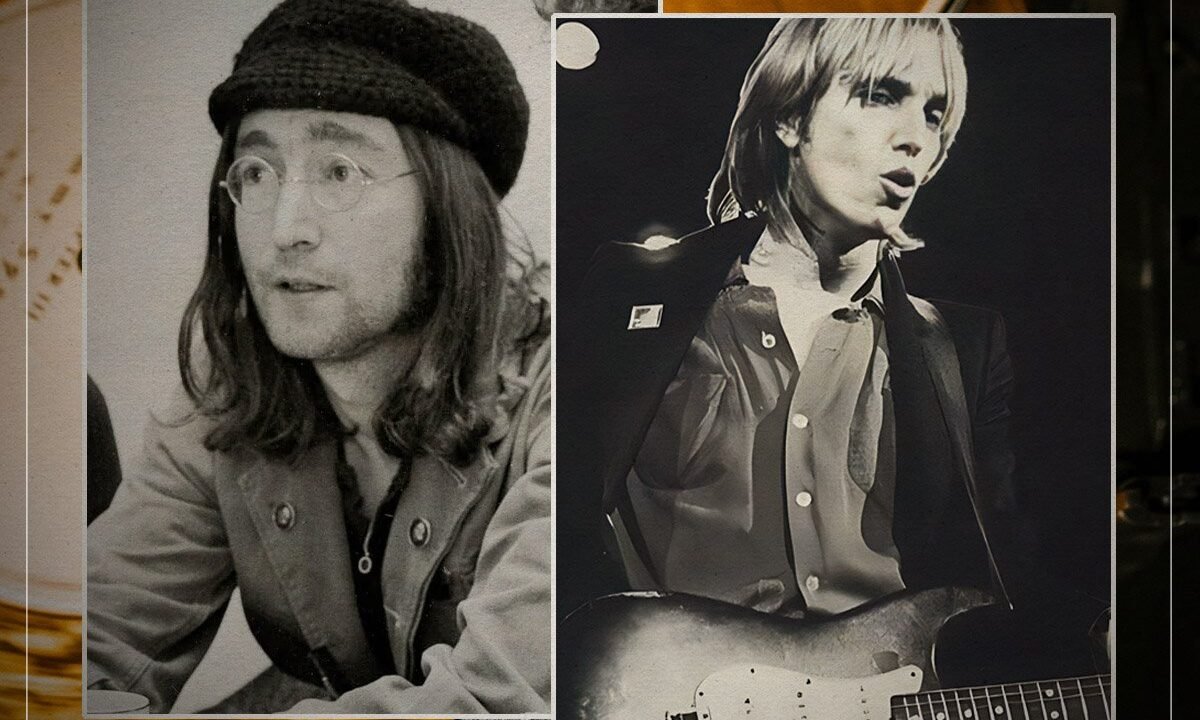
‘All In the Suit That You Wear’ – Stone Temple Pilots

For most musicians, movie soundtracks are usually the best way to get some free press and generate a little bit of buzz. No one is looking to bring their A-game to a soundtrack album, but every so often, movie studios will catch artists in their prime and manage to land one of the best tunes of their career without even realising it. But right before becoming one of the biggest rock songs of the 2000s, Stone Temple Pilots decided to pull the plug on their collaboration with Spider-Man.
Sam Raimi’s take on the titular wallcrawler was already going to be one of the most buzzed-about movies of 2002, and the original idea was to have STP’s song close out the movie in the end credits. The song is fantastic by their standards around that time as well, fitting somewhere in between the garage rock style that they were trying out and the glammy transformations that they had started before Scott Weiland traded in his grunge spurs for Velvet Revolver.
But the studios felt that they needed a bigger name attached to their project, so we were “gifted” with the song ‘Hero’ by Chad Kroeger and Josey Scott since Nickelback were slowly gaining traction. Kroeger’s take on a superhero theme is admittedly not terrible by his standards, but disappointment is always worse when you realise what we all could have been seeing playing over the end credits.
‘Get Her Back’ – Robin Thicke

Robin Thicke was never meant to be the kind of sympathetic loverman that every other R&B star was destined to be. As much as Usher had his fair share of songs about clubbing, he still had songs like ‘Burn’ to his name that made everyone fawn over every single melismatic word that came out of his mouth. But in the case of Thicke, he ended up shooting himself in the foot a few times over the minute that he tried to win his ex-wife’s affection on ‘Get Her Back’.
It’s not out of the question for singers to release albums all about their love life, but Thicke’s attempt to right his wrongs fizzled out when he started performing the track live. Along with the off-putting music video that featured him with his underwater gasping for air, it got extra creepy when he went onto award shows and played the song, as if to make every single person in the audience complicit members of his strange public spectacle to get his wife back.
Special attention should also be paid to his performance at the BET Awards, where he played his song ‘Forever Love’ later in the evening, including a moment where he fakes crocodile tears to earn a dash of sympathy. As evidenced by the fact that hardly anyone bought a physical copy of the record, though, it’s pretty safe to assume that kind of hurt lover schtick would never happen.
‘My Generation’ – Patti Smith

It’s easy to tell when some artists aren’t as proud of what they’re putting out. Whether it’s because of industry compromises of censorship, it’s easy to see some artists subtextually rolling their eyes the minute they get on the red carpet for a project they think is transparently flimsy. Then again, not many were willing to be as brave as Patti Smith by deliberately asking people not to buy her music.
But if there was one thing that the matriarch of rock poetry would do, it was go along with censorship. The live rendition of her doing The Who’s ‘My Generation’ is a brilliant snapshot in time, but since she said the phrase ‘fuckin’ shit’, the label ended up getting cold feet and chose to bleep out the offending words. Smith would never go along with that, even encouraging people not to listen to it.
Any record label would see this as a PR nightmare, but Smith wasn’t interested in playing that kind of game. She made art for the sake of capturing the times that she lived in, and that art isn’t always the most PC, so it was better for her to put out something authentic than worry about what concerned parents are going to think about little Sally bringing home one of her records.

A greatest hits album usually reeks of contractual obligation half the time. There may have been some fabulous best-ofs that have come out over the years, but a catch-all of an artist’s best moments will never fare well with people who see their albums as art pieces. So when you ask those same people to release some new material, you’re bound to get something like what Eminem dropped every now and again.
While Encore was already considered a bit of a disappointment by fans, Curtain Call: The Hits introduced everyone to the most unhinged version of Eminem they have ever heard. He was known to be crude before, but this is crude to the point of off-putting, with ‘Slim Shady’ putting on what sounds like an Eric Cartman voice in the chorus as he talks about getting off to gerbils getting shoved up his rectum.
Even though it’s no fun to be called into the studio to make a new song for the hell of it, Eminem seemed to test the theory that he can shit out anything and walk away with a hit. But even by the curve of good taste that he’s normally graded on, this is the kind of song that would make anyone want to check in on Eminem to make sure that he isn’t about to have some psychotic break.
‘Woman is the ****** of the World’ – John Lennon

John Lennon was never a man to mince his words. If it was how he felt, it wasn’t off the table for him to throw it into a song, and some of the greatest moments in his career involve him saying what’s on his mind, even if it might upset some people. And while ‘Revolution’ and ‘Power to the People’ went over well as brilliant protest songs. But sometimes Lennon crossed a line, and it was easy to see why some fans wanted no part of the lead-off single to Some Time in New York City.
Lennon had enough sense to speak about the ongoing problem with women’s rights, but projecting a racial slur onto their problems was never going to help his case. To be clear, Lennon wasn’t intending to be racist with the slur, and had even been interviewed in magazines talking about how black artists changed his life, but there were always going to be people who took issue with throwing one gross slur on top of someone else’s issues.
While Yoko Ono coined the phrase, it was enough for many people to stay far away from the album before it even hit shelves. The song eventually earned itself a spot on his compilation album Shaved Fish, but no amount of stellar melodies and glorious saxophone breaks would ever make anyone more comfortable with a former Beatle singing a form of hate speech.
‘Misery Business’ – Paramore

Paramore has always been known to switch things up whenever they make a new record. After all, music should be like a learning experience every time someone walks into the studio, and throughout their career, the band have always taken risks and seen where their muse can take them beyond the standard pop punk they started with. But with age comes wisdom, and Hayley Williams made a bold claim when she elected to cut any and all ties to ‘Misery Business’ for years.
Although the track has become one of the band’s signature songs over the years, Williams couldn’t help but notice that some of the language was more than a little bit misogynistic when she looked back at it. Sure, it sounds like a great revenge song on someone who stole her boyfriend, but saying that she does nothing but a whore underneath that facade doesn’t help remedy the situation all that much.
So midway through the 2010s, the band elected to lay the song to rest, with Williams only playing the tune every now and again in between their more interesting singles like ‘Still Into You’ and ‘This is Why’. It’s a brave choice for anyone to eradicate some of their own tunes, but it’s a lot better to separate yourself from the art that you made when you were a teenager as time goes on.
‘Roll With It’ – Oasis

Any rock fan at the peak of ‘Cool Britannia’ could probably tell you where they were when the musical ‘Battle of Britpop’ began. The tension had already been building between Oasis and Blur over a few months, but now that they were in a musical grudge match with each other, the public would decide who owned the heart of English rock. And while Oasis did put up a fair fight, Noel was furious when he discovered that ‘Roll With It’ was unintentionally sabotaged by printing errors.
When combing through the stats for the day, Noel had to be told that copies of their singles were being printed with improper barcodes, meaning that many of their sales weren’t being counted next to Blur’s. While it wasn’t exactly a fair fight, Noel didn’t take it well, ultimately getting pissed out of his head before appearing on Top of the Pops barely holding onto the microphone as he and Liam swapped roles.
Despite Noel admitting that both songs in the battle were dreadful as far as he was concerned, he felt a little redemption when What’s the Story Morning Glory came out. He may not have won that particular battle, but looking at how well the band has been going in the hearts and minds of fans since then, it’s safe to say that he won the Britpop war by the time the 1990s drew to a close.
‘A Woman in Love (It’s Not Me)’ – Tom Petty and the Heartbreakers

By the 1980s, Tom Petty could pump out hit records in his sleep. It took him a while to gain momentum off of Damn the Torpedoes once he demanded his label give him his songs back, but after the massive success, Hard Promises was always going to be a bit of a comedown. And while ‘The Waiting’ is still a classic piece of heartland rock, Petty inadvertently killed his momentum when his producer asked him for a song for his latest client, Stevie Nicks.
Nicks had already been riding high after Fleetwood Mac blew up, but after deciding to go solo, Jimmy Iovine pestered Petty to give her a song. While Petty’s initial offering was the ballad ‘Insider’, Iovine took to ‘Stop Draggin’ My Heart Around’, which had the right amount of swagger that Nicks needed without sounding too soft. But when looking at both the duet and Petty’s ‘A Woman in Love’, the radio wasn’t about to play two separate Heartbreakers singles on the air and stuck with the more star-studded offering.
The Heartbreakers weren’t exactly subtle about it, either, with Nicks eventually meeting guitarist Mike Campbell on tour and being told their duet “killed” the band’s momentum. It was all meant in good fun, but Petty learned a valuable lesson that day. This was a cutthroat industry, and as much as the residuals from ‘Stop Draggin’ My Heart Around’ cushioned the blow, it had to be a rough week trying to figure out where to go next.
‘Anyone Can Play Guitar’ – Radiohead

Not every band can put their best foot forward at the very start of their career. It takes artists a lot of time to build momentum, and when they finally have their bearings, it’s easy for them to look back at their old sound and wonder what the hell they were even thinking. But rarely has a band managed to go through that kind of embarrassment in real time like Radiohead did when performing ‘Anyone Can Play Guitar’.
Pablo Honey may have done decently by pop-rock standards thanks to the lead single ‘Creep’, but when Thom Yorke showed up to play their next single about playing in a band when he gets to heaven at a pool party, he was absolutely livid. From the moment the MTV footage starts, Yorke is out for blood, ending with him shouting into the camera and throwing himself into the pool in a fit of frustration by the time he’s finished singing.
Nothing was going to slow the band’s momentum down once The Bends started, but this is the closest fans will ever come to watching a song be put out of its misery. This version of Radiohead would never exist anymore after this gig, and everyone at that MTV taping had to witness a song’s funeral.
‘Teach Your Children’ – Crosby Stills Nash and Young

Crosby, Stills, Nash and Young were always a band known for taking risks. They never wanted to have their music placed into a box like all of their other projects, and them getting together was a case of everyone wanting to make something new that would shock fans out of their seat a little bit. And while they could still make pleasant, happy songs, Graham Nash wasn’t only fully okay with killing ‘Teach Your Children’; he was an avid supporter of it.
The whole idea of this lilting acoustic ditty might have been about nurturing that relationship between the Woodstock generation and their parents, but as soon as the Kent State shooting occurred and Neil Young came back with ‘Ohio’, the band were dead set on releasing it no matter what came next. They knew they had put themselves on the chopping block by talking about these heinous crimes and the children dead on that college campus, but it was their only way of reacting to the situation.
And while most people may have been uncomfortable seeing the real-life carnage work its way into a pop song, ‘Teach Your Children’ wasn’t meant to have that kind of impact. ‘Ohio’ was a form of musical journalism that needed to get out as soon as possible, and it takes a true artist to steamroll over one of their greatest songs if it means getting to the truth of their generation’s pain.







